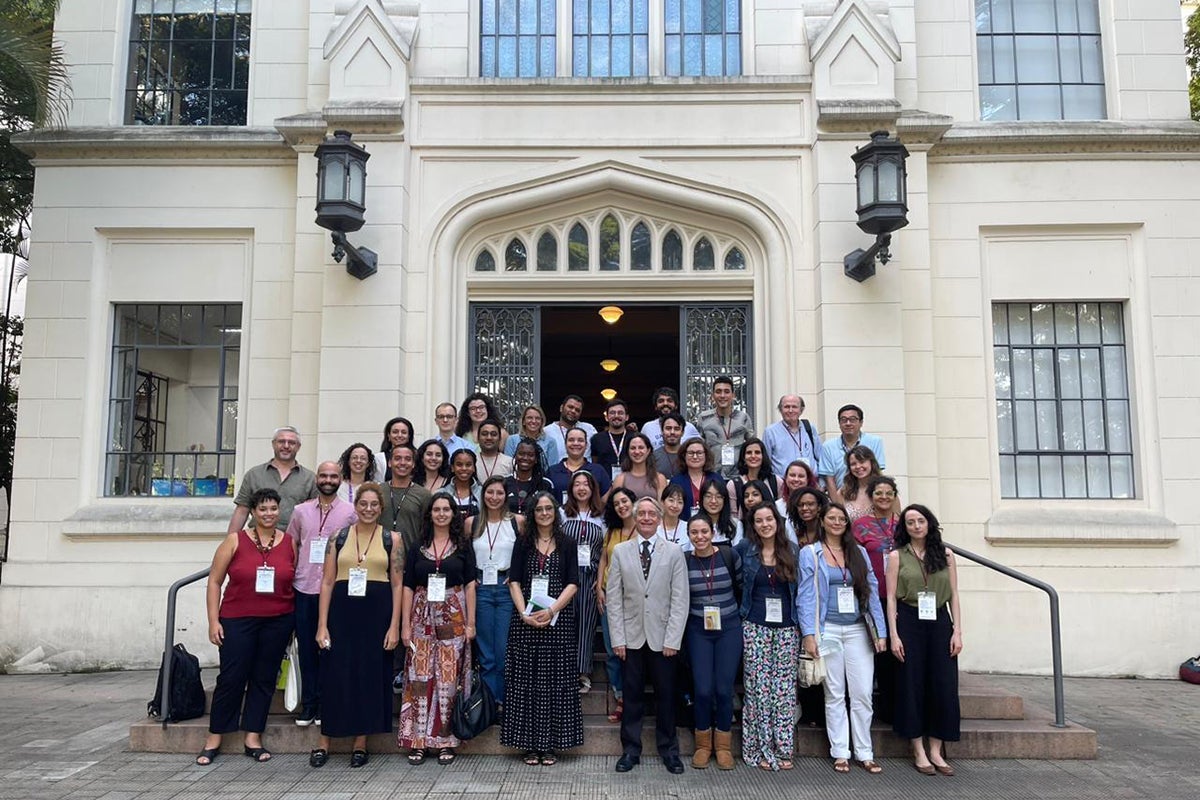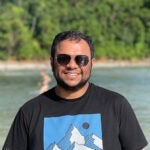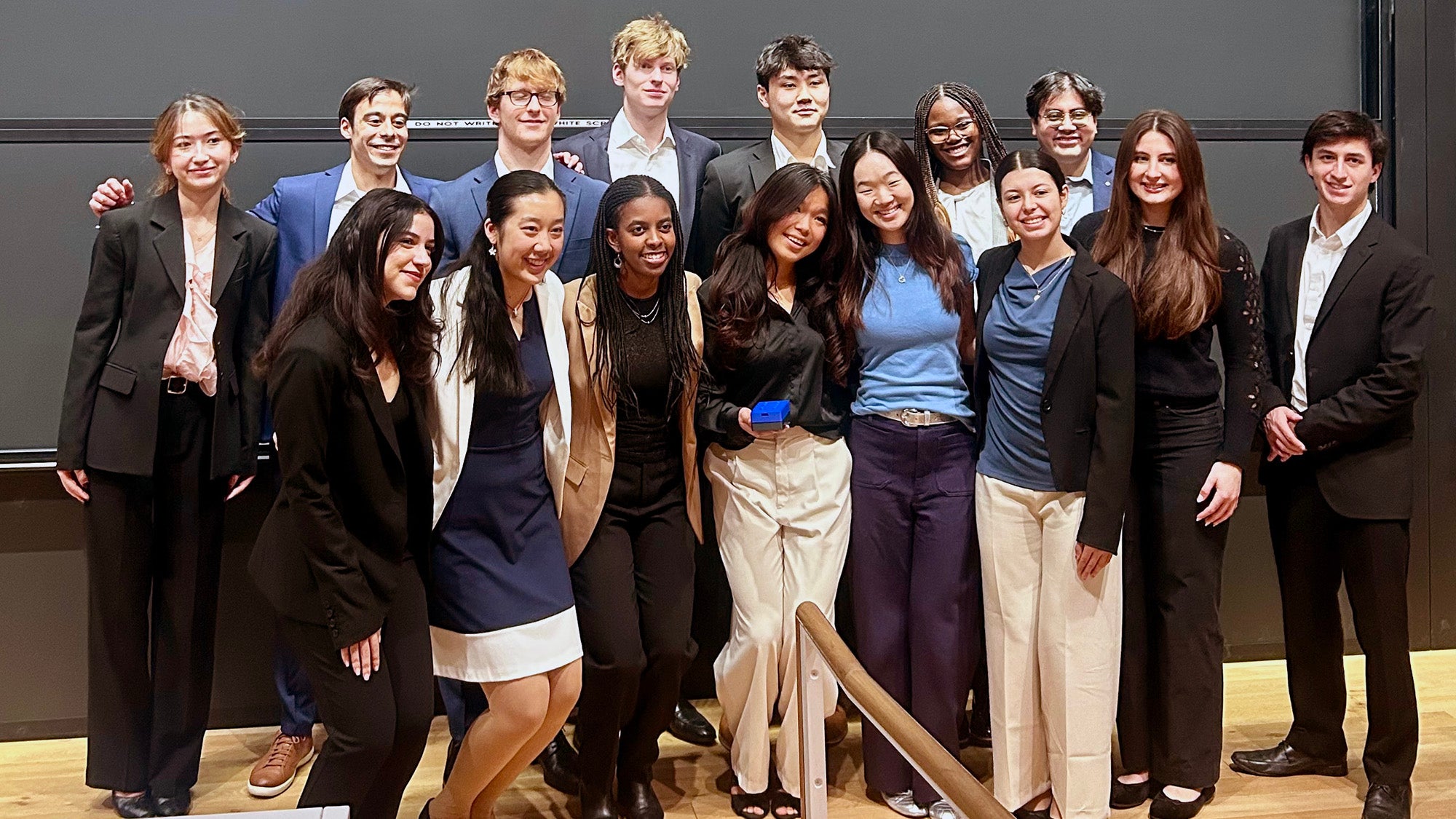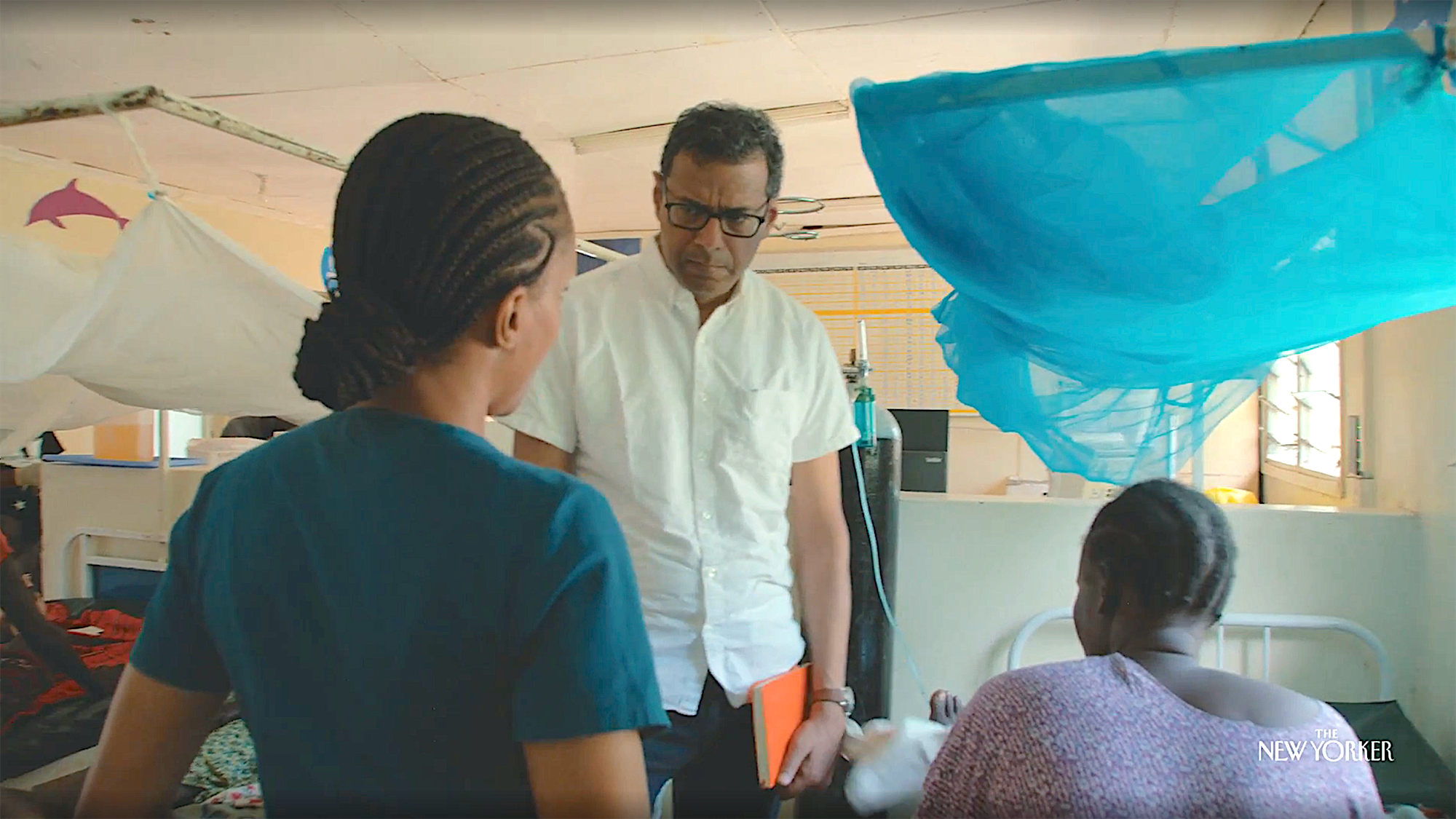Harvard and Brazilian students team up in public health field course

February 16, 2023—For three weeks in January, 18 students from Harvard traveled to Brazil to join 18 local students for a collaborative public health field course. It was an opportunity not just to observe the country’s public health challenges, but to work actively with members of the community on developing solutions.
The experience helps students learn to listen with empathy and respect for others—a key skill for any public health practitioner, according to course leader Marcia Castro, Andelot Professor of Demography and chair of the Department of Global Health and Population at Harvard T.H. Chan School of Public Health. In a January 29, 2023, column in Folha de S. Paulo, she wrote, “There is no solution without understanding the context, and you only understand the context by listening.”
The course was held in São Paulo this year in partnership with the University of São Paulo Medical School, the Getúlio Vargas Foundation, and the Brazil office of Harvard’s David Rockefeller Center for Latin American Studies. It was its 16th session and the first complete course to be held in-person since 2020.
Students spent the first week attending morning classes that brought them up to speed on Brazil’s health system and infectious disease burden, in addition to health challenges faced by this year’s host city. Much of the rest of their time was spent in the field visiting public health sites around the city, including government institutions, health facilities, and community programs. Students had the opportunity to speak with patients and community members, in addition to frontline public health workers and other practitioners.
Throughout the course, teams made up of three Harvard students and three Brazilian students worked alongside local professionals to develop their final projects—actionable interventions to address public health challenges. The projects were presented at the end of the course and made available to local agencies to implement.

Sidd Kogilwaimath, MPH ’23, whose team focused on HIV prevention in at-risk groups, appreciated that the projects were true collaborations. “Prior to the trip, I was aware of the power differential being from an elite institution from the global north brings in any north-south global health endeavor,” said Kogilwaimath, an infectious disease specialist now from Canada, and originally from India and Brunei. “I was keen to learn from our colleagues, and also contribute meaningfully to the discourse, relying on my own experiences working with vulnerable populations.”
Kogilwaimath previously worked in the Canadian province of Saskatchewan, which has the highest rates of HIV in that country, disproportionately affecting young women and indigenous people. He said that he was impressed by what he learned about Brazil’s public health care system, called Sistema Único de Saúde (SUS), and appreciated the opportunity to meet clinicians, community health workers, and others who are integral to the system.
He also enjoyed the opportunity to bond with the Brazilian students by exploring the city, getting to know Brazil’s various styles of music, learning to dance forró and samba, and sharing lots of great food. He even joined them for a pro-democracy demonstration in response to the January 8 attacks on federal government buildings by supporters of former president Jair Bolsonaro.

Do Kyung Ryuk, SM ’23, came away from the course inspired by the Brazilian students and their passion for improving health care in their country. “I got a lot of energy from them,” she said. “This special connection from the course inspired me to continue exploring more about Brazil and hoping to do collaborative work in the future.”
She was part of a team that focused on reducing deaths from tuberculosis and HIV in São Paulo. They visited TB hospitals and talked with patients in different clinics, an experience that proved illuminating, she said. “I realized that there are gaps between what the research papers say about TB treatment and what patients actually experience.”
The experience also led her to better understand the context of TB treatment outcomes in Brazil, which is the topic of her master’s thesis, she said. It’s a subject that’s very personal to her because she was treated for the disease in South Korea when she was young. “That experience led to my interest in infectious diseases, and how important health systems are for providing access to quality care,” she said.
“The course is one of those unique opportunities to get students involved in real public health: the good, the bad, and the ugly,” said Castro. “It’s a chance to exercise learning, to collaboratively seek to resolve problems, and to discover a true passion for public health work.”
Ryuk said that she recommends the course for students interested in infectious diseases and in seeing how policies to address them are implemented on the ground. For her, the experience was a hit: “I just love the course so much and I really miss Brazil. I want to go back.”
Photos: Courtesy of Sidd Kogilwaimath, Do Kyung Ryuk


